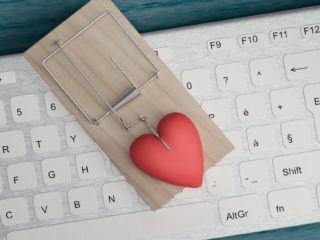It’s World Mental Health Day, and so here I am to talk about mental health. Don’t worry, you don’t have to prepare yourself for a heavy tale that will make you as sad reading it as I was living it, I’m not here for that and I don’t think you are either. Don’t get me wrong, first-hand accounts of mental health journeys are super important, and I’ve been there done that (CEO of oversharing on social media), but am I the only one who’s noticed that talking about things like depression and anxiety feels like it always has to be so… well, depressing?
If I’ve already lost you, let me explain. As humans, we suffer from a whole slew of mental health-related issues – we’re already sad enough. We’re living it – so why should we have to be even more sad when talking about it? Bringing up a mental health-related topic often stops people in their tracks, and I’ve started to notice that a lot of people feel they need to change their whole mood and persona to have a conversation that should feel normal, and it’s truly exhausting.
Honestly, the world is straight-up whack right now, and at the very least, we should be able to talk to each other about how we’re doing without it feeling like a huge ordeal. So, as someone fluent in general anxiety, social anxiety, depression, and seasonal affective disorder (weird brag, I know) I want to share the key takeaways from my own journey in the most ~normal~ way possible, because that’s how I roll, and I hope it inspires someone else to do the same
Overshare, Make it Weird
Close friends of mine have made talking about our mental health so hyper-normalized that if someone read our texts to one another they would probably be very confused at the casual tone. Yes, we ask each other how we’re doing like regular people, but unlike the polite “I’m great this week!” that a lot of us might feel the need to send back, responses often look like any combination of the following, and no this list isn’t exclusive:
“I’m depressed af and want to crawl in a hole“
“Honestly I’m so terrible right now”
“My social anxiety is outta control thinking about even going to the grocery store is enough to make me want to throw up”
“Oh fantastic aside from my morning panic attack!”
“Winter is coming and so is my seasonal depression”
This might seem way too personal but I’m on team overshare, especially with your friends and family. First of all, why lie to the people who care about you? Second, the only way to make a conversation normal that feels anything but is to just keep having it. Yeah, you’ll probably be met with a response like “oh my god, are you okay?” the first couple times, but eventually it becomes a two-way street and you might end up getting a “yep, me too.” The goal isn’t to hope to bond over mutual sadness, but the goal is to make everyone around you feel like it’s something they can bring up casually and honestly without worrying about the response.
You’re Allowed to Have Good Days Amongst the Terrible Ones
Something a lot of people don’t understand yet is that even if you’re struggling, you might not be struggling 24/7, 365, and I can’t believe I’m saying this, but that’s okay. Once we open up about having a hard time, we might feel like we need to be terrible, always, in order to justify our actions to people. If you can’t get out of bed one day but are living it up with friends the next, you’ll often hear comments like “They just told me how depressed they were but they seem fine to me,” or “They must have been blowing things out of proportion because look how happy they are now!” Newsflash – you’re allowed to have good days, and I can guarantee that no one is lining up to ride a mental health roller coaster, I’m surely not … but yet here we are.
If you’re in a stellar mood (let’s be honest, it can be rare these days) but yet you feel like you have to be sad to ‘keep up appearances,’ there’s something wrong, because you 300% do not. If nobody’s told you yet, you don’t need permission to feel how you feel, and being happy doesn’t render everything you might be struggling with irrelevant in any way. If you need a terrible analogy, think of your mental health like having a baby. You truly can’t predict what’s going to happen next – sometimes it’s going to be screaming and crying, and sometimes it’s going to be giggling and that’s just the way it is.
You’re Also Allowed to Laugh at Your Pain
Look, emotions are straight up so weird. Having bad anxiety is like having the worlds’ most annoying auto-correct in your brain, and when you mean to react one way and you’ve suddenly reacted the exact opposite, sometimes all you can do is laugh at the weirdness. If dark humor makes you uncomfortable, you do you, but there’s plenty of legit research on the usefulness of humor as a coping mechanism, especially when it comes to mental health, so don’t feel like it’s off-limits.
IMO, making a joke here and there about my own suffering normalizes it more than anything, and if you want to share a relatable meme about depression that makes you feel better, go for it – I’m right there with you. A hot tip though: laugh at your own pain if that works for you, but keep in mind everyone copes in their own ways. Assuming someone deals with their mental health the same way you do can lead to awkward moments for everyone involved, so all the more reason to talk about it openly and see what their vibe is.
Moral of the Story? It’s You Who’s Normal
Sorry, but anyone who says their mental health has never felt like it’s being slowly flushed down the toilet beyond the point of no return is just not being real with you, or maybe they’re in denial, or maybe they truly have the perfect brain – who knows. My point is, if you’re someone struggling with any sort of mental health condition or illness, diagnosed or not, it’s you who’s normal. Feeling like you can’t talk about what’s going on in your head because you’re not sure what other people will think is up there with one of the worst feelings ever, but realizing so many other people understand what you’re going through can be one of the best.
I’ve said it once and I’ll say it again, we’re living in unprecedented times where having any sort of control can feel totally out of reach, so it’s only natural to feel completely and utterly overwhelmed by it all. Everyone’s mental health is on a spectrum, and while there are varying levels of seriousness to all of this, the more we recognize that we’re not alone, and the more we talk about what we’re going through more openly, the more normal it will become. Normalizing your mental health isn’t just for everyone else, it’s for you too and you deserve to feel (someone stop me from saying it another time) … normal.
If you are experiencing a serious mental health-related concern that is severely worrying you, please don’t rely on my unsolicited advice, and instead please utilize these resources.











